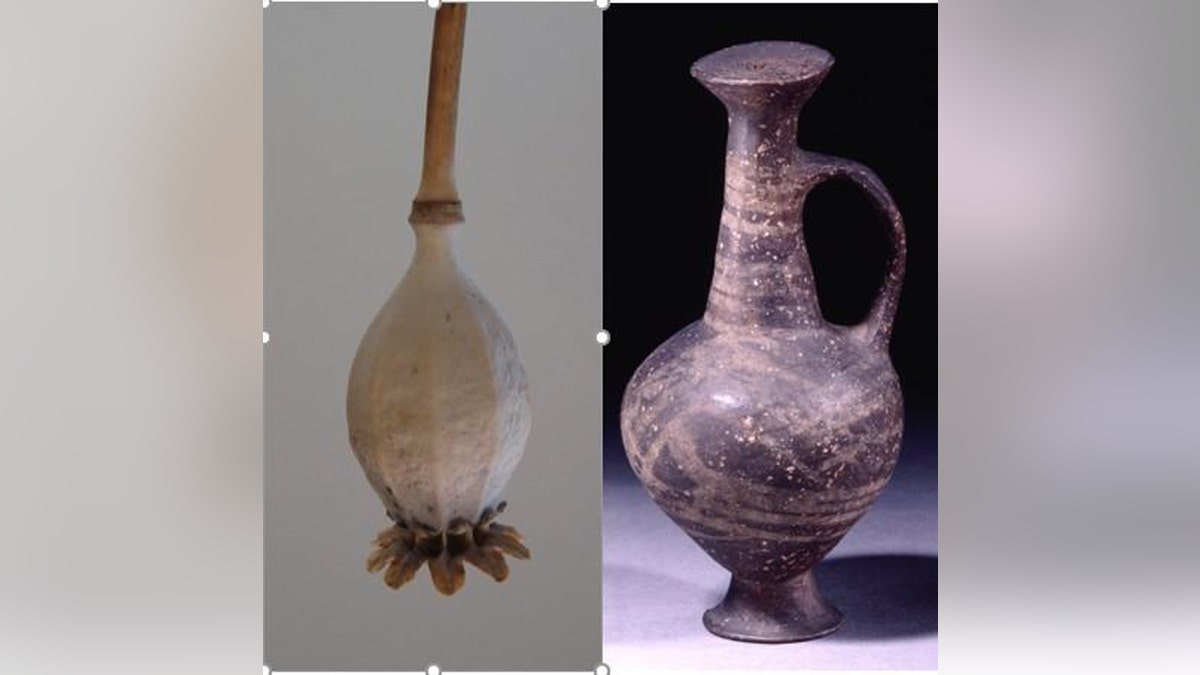
The base-ring juglet resembles the seed head of an opium poppy. (Credit: British Museum)
A 3,000-year-old container originally found in the eastern Mediterranean and now kept in the British Museum contains traces of opium, according to a new study.
The study, published in Royal Society of Chemistry's journal Analyst, confirms that these types of containers – known as a "base-ring juglet" – were used to carry the drug. Researchers had heavily debated the topic over the years.
"The particular opiate alkaloids we detected are ones we have shown to be the most resistant to degradation, which makes them better targets in ancient residues than more well-known opiates such as morphine," said Dr. Rachel Smith, who developed a new analytical method to find the opiate alkaloids, in a statement.
SECRET IDENTITY OF 150-YEAR-OLD BODY FOUND IN NYC REVEALED
Dr. Smith continued: "We found the alkaloids in degraded plant oil, so the question as to how opium would have been used in this juglet still remains. Could it have been one ingredient amongst others in an oil-based mixture, or could the juglet have been reused for oil after the opium or something else entirely?"
These particular jugs were known to be "widely traded" in the eastern Mediterranean circa 1650-1350 B.C., making it all the more likely that were used for transporting opium. LiveScience reports that the earliest use of opium-poppy by humans dates as early as 6000-5001 B.C.
When turned upside down, the containers also resemble the heads of opium poppies.
The jug where the evidence was found was sealed. As such, the contents inside were preserved, allowing the researchers to further explore the depths of the opium trade and the culture of the time.
"The juglet is significant in revealing important details about trade and the culture of the period, so it was important to us to try and progress the debate about what it might have been used for," said Professor Jane Thomas-Oates, Chair of Analytical Science in the Department of Chemistry, and supervisor of the study at the University of York.
After the tests proved successful, the next step "is to see if we can succeed with less well-preserved residues," Professor Thomas-Oates added.
Follow Chris Ciaccia on Twitter @Chris_Ciaccia




















